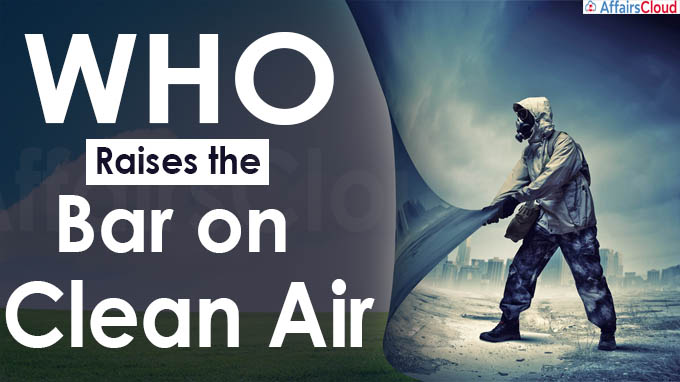 The World Health Organization (WHO) announced new stringent Global Air Quality Guidelines (AQGs) to assess the effects of air pollution and its health impact.
The World Health Organization (WHO) announced new stringent Global Air Quality Guidelines (AQGs) to assess the effects of air pollution and its health impact.
- Earlier, WHO issued guidelines in 2005. Yet many countries did not reach 2005 AQGs.
- Even lower levels of air pollutions have impact on health and climate change
- In the new AQGs thresholds was set for six key air pollutants — particulate matter (PM2.5 and PM10), ozone (O3), nitrogen dioxide (NO2), sulphur dioxide (SO2) and carbon monoxide (CO).
- Bangladesh, Pakistan and India have recorded the highest air pollution levels with regard to the 2005 WHO guidelines.
Indian Scenario
According to Greenpeace India, Delhi’s annual PM 2.5 in 2020 was at 16.8 times more than the latest WHO guidelines. Mumbai exceeded eight-fold, Kolkata 9.4 fold, Hyderabad 7-fold and Ahmedabad 9.8-fold.
Global scenario
i.About 90% of the world’s population lives in areas that exceed air quality thresholds.
ii.In high-income countries, air quality has improved gradually, but pollutant concentrations still exceed the 2005 WHO AQGs for several pollutants in many areas.
iii.The picture is grim for most low and middle-income countries, where air quality has deteriorated due to large-scale urbanisation and economic development that relies considerably on fossil fuel.
iv.The Covid-19 lockdowns saw a temporary reduction in concentration of air pollutants across cities with a clear dip in nitrogen oxides (NOx) — a traffic related pollutant.
Impact of Air Pollution
i.According to WHO’s estimate around 7 million premature deaths occur every year due to the effects of air pollution. However, 80% of the deaths attributed to PM2.5 exposure in the world could be avoided if countries attain the annual AQG level for PM2.5.
ii.Even reaching the AQG of 2005 — would result in a nearly 48% decrease in total deaths attributed to PM2.5 exposure with highest benefit in South-East Asia and African regions (57% and 60% reduction respectively).
About World Health Organization
Headquarters: Geneva, Switzerland
Director-General: Tedros Adhanom Ghebreyesus




